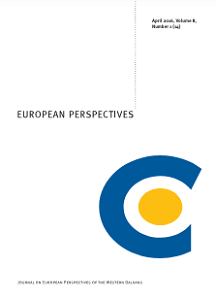Antagonistic Political Communities within State Borders as National Security Issue: The Case of Montenegro
Antagonistic Political Communities within State Borders as National Security Issue: The Case of Montenegro
Author(s): Uroš SveteSubject(s): Politics, Governance, Government/Political systems, International relations/trade, Security and defense
Published by: IFIMES Mednarodni inštitut za bližnjevzhodne in balkanske študije
Keywords: political community; demos; national security; Montenegro; history; foreign influence;
Summary/Abstract: Having overcome the fundamental global ideological differences and technological development at the end of the Cold War, many hoped for a period of continuity and stability in the world. Unfortunately, empirical data has revealed a very different truth. The number of interstate conflicts may have decreased, but we are instead witnessing the failure of many states, internal conflicts and asymmetric modes of conducting war. In this article we will attempt to explain some of the fundamental social events that have led to this international and national security issue. In doing so, we assume a concept of political community and demos, where demos is defined as a nation that is politically constructed and is considered to have a common identity which results in loyalty, trust, solidarity, even the victim to maintain a system of democratic governance. The problem that we want to highlight is that the demos or political communities within the borders of nation-states are increasingly falling apart in the sub-communities. On the other hand, the newly formed nation-states in particular are unable to homogenise their political community, which is vital to their national security and stability. Internal social fragmentation, which is the basis of political pluralism and competitive representative democracy, can be fatal to the country’s further development. This thesis will consider the case of Montenegro, a country whose independent statehood was restored in 2006. However, its historical variations with periods of armed conflict i.e. civil wars led to the point where the entire political rhetoric and dialectic is reduced almost only to the question of existence of the state and its positioning in relation to superpowers or regional power centres. Although at first glance there seems no way out of the situation, certain theoretical concepts and empirical examples do offer a potential solution, particularly in transnational associations and the creation of a common identity of a political community. However, this is time-consuming and thorny path.
Journal: International scientific journal European Perspectives
- Issue Year: 6/2014
- Issue No: 1 (10)
- Page Range: 37-56
- Page Count: 20
- Language: English

